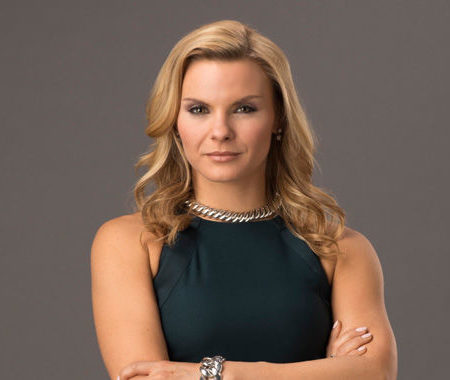By: Stephanie Porfiris, April 23 2020
Learn from Michele Romanow, Alkarim Jivraj and Kaz Nejatian about how to identify whether or not financing is founder-friendly, and how your startup can get cash in the door without getting pushed around by investors.
COVID-19 ushered in a slow down of the venture market, meaning fewer liquidity deals for investors and less dry powder for startups. As venture capital becomes even harder to secure, finding alternative sources of funding and, most importantly, sources that are safe and reliable, is crucial.
“When I sold my previous company, Achievers, we gained national notoriety when we became the first ever Canadian company to raise money from Sequoia Capital (who is the least founder-friendly firm on the planet). Sequoia took control of our Board and put onerous terms in our shareholder agreements”.
Razor Suleman, elevate Co-chair
At Elevate Live, we sat down with three of the best alternative financing firms in Canada to discuss what founder friendly financing means to them and how entrepreneurs can keep control and alignment top of mind.
Want to receive more Elevate Festival updates, the latest tech trends, exclusive offers, and more right in your inbox? Sign up to become an Elevate Insider today.
The risks are real – so what can today’s entrepreneurs do to safeguard themselves against the common pitfalls of conventional fundraising, particularly in light of COVID-19?
What does founder friendly financing look like?
When asked what founder friendly financing looks like to them, each panelist had a slightly different take. The common thread? It ? should ? serve ? the ? founder. Funding must balance the needs of the investor and the founder, without asking the latter to put their life on the line or compromise on the long term goal.
Here are a few benchmarks to help you tell whether your funding is serving you:
There should be no fixed timelines
Michele Romanow stumbled upon her (now hugely successful) model of funding while on Dragon’s Den, where she noticed entrepreneurs giving up a tremendous amount of equity in exchange for capital that was, essentially, going to Google and Facebook ads. Instead of taking 10% of their company in exchange for the requested revenue, she proposed taking 5% of their revenue until they pay her back slightly more than she invested. A win-win for all, and the basis of Clearbanc. “There should be no fixed payment timelines or personal guarantees; if you use my capital to grow, you get a bigger business and I get my capital a bit sooner. If it slows, I’ll wait it out and take the journey with you.”
You should retain as much equity as possible
Alkarim Jivraj and his team at Espresso Capital believe founder friendly financing should keep founders in control of their destiny; their fortune. It should enable them to retain greater equity ownership in their businesses, particularly at critical moments when they might otherwise suffer from excessive dilution. “Raising money is time consuming; it saps your soul. So we want to give access to capital quickly, when they need it, on terms that are fair and flexible.”
Capital wins when the founders win
For Kaz and the group at Shopify Capital, that can mean different things in different circumstances. Kaz believes that most businesses are not designed to fit well in a VC portfolio, nor are most inventors going to align with the founders’ interest. “The great majority don’t need a $10M Series A cheque. So for us, founder-friendly financing means having us on the same side of the table as the founder.”
It should be fast and flexible
Kaz’s team puts turnaround time at the forefront of their model. “We launched Shopify Capital [in 2020] and within the first hour we’d already funded businesses. We don’t fund in days, we fund in minutes. On the high end we’ll fund someone who wants a million dollars, on the low, $200. We’ll cut them both cheques.”
How has COVID impacted the funding landscape?
We all know that COVID-19 has caused a profound shift in the market, but what factors are at play other than a slowing economy? Our panelists had a few insights that may not be obvious at first glance.
VCs are playing triage
If you’re reading this, you probably know first hand that this is a really difficult time to get money in the door. Not only have investors become skiddish due to fluctuations in public markets, but Michele points out that they’re also hyper focused on saving existing companies, which is redirecting resources away from supporting new ones. “I really recommend that this is not the time to raise funds unless you absolutely have to.”
There’s a smaller toolkit available for entrepreneurs
Michele also notes that many of the tools relied on by startups are not at their disposal, particularly in-person meetings. “You don’t have the ability to see VCs in person, so you can’t create that compelling story, and that makes it much harder to create a bidding war and higher valuation for yourself.”
This calls for adjusted cost structures
One of the biggest impacts from Alkarim’s perspective is the increased need for self-awareness, stress testing, and grit. However you’re hoping to fund your startup, you’ll need to look in the mirror and prepare for a worst case scenario. “Our companies grew last year at a rate of 50%. We think this year that growth will be at approximately half this year. If your cost structure was built based on 50% growth, it will need to be adjusted. We need to make sure that new companies we find are built for a worst case scenario.” Bonus tip: Want an in-depth look at another way you can adjust your models accordingly? Take a look at Alkarim’s explanation of combining debt and equity strategically:
Relax…if you’re in e-commerce. Kaz maintains that, for the world of e-commerce, now is the best time to start a business. “The first thing we did [at Shopify] when we thought the world was going to panic is commit $200M to businesses. We do well when our merchants do well, so we think this is a great time to become a merchant.”
How should founders approach raising capital in today’s environment?
We’ve established that the world of funding has changed, and that means founders need to change their strategy. Here are a few tips on exactly how to do that.
Consider what equity makes sense, when
Michele points out that not all types of equity are created equal, and now is a great time to put thought into what type belongs where. “Equity makes sense when you’re taking an insane amount of 0-1 risk. When you look at other things that many companies are spending money on, like user growth (digital advertising, sales commissions), those are things where you understand I’m injecting a dollar and getting two dollars out. Those are things where it makes sense to use a cheaper form of capital.”
Read the fine print
Michele drives home the point that secured capital may not be all that secure, and advises founders to be aware of their legal protection (or lack thereof. “Those clauses on the back pages on your contract really do matter. A clause where a bank can say the circumstances have changed and we’re taking back that capital? These are the exact economic circumstances where that happens.”
Know your unit economics and risk profiles
No one can put this better than Alkarim himself, so we’re leaving it to the pro! Check out his detailed overview of how understanding these principles can help you stay in good favour:
What other risks/protections should founders be aware of?
In our conversation with the panelists, two themes consistenty came up, and they relate to something all founders care a lot about: their own safety and security. When you start a company, you’re pouring your lifeblood into something, and you deserve to be protected. Here are two of the most vital aspects of retaining the control and integrity of your business.
Guard Board seats with your life
When asked if their firm takes a Board seat, the answer from our guests was unanimous: NO. The most powerful warning came from host and Elevate Cofounder and CEO, Razor Suleman, who warns, “they will put onerous terms on that seat, and seek someone to replace you.” Unless you are given absolutely no other option, do not offer these up to funders.
Don’t offer personal guarantees
Another unanimous response: no one should have to leverage personal equity to secure funding. In the words of Michele, “Being a founder is already the hardest job in the world, they shouldn’t have to put their personal assets on the line”. As with protecting your Board seats, protect your personal equity unless every other option is exhausted.
Key Learnings
- Work with a team that will let you focus on the right source of capital: customer revenue.
- Diversify your funding: look at every government program available, from FedDev and IRAP to the ones released around COVID. Often they are non diluted, low interest-bearing and in some cases don’t even require payback
- Don’t offer personal guarantees; your job is hard enough without putting your assets on the line
- Don’t let investors get a hold of your Board; they will not use it to benefit you
- Read the fine print on all contracts and know when you’re entitled (or vulnerable) to
- Retain as much equity as possible – it’s your company, after all
- Know your unit economics and risk profiles intimately
Ultimately the message here is simple: funders and founders should be working together to create something great, that’s true to the vision of the person who started it. Funding should not feel like fighting for scraps – it should be a partnership and a relationship that benefits both parties.
The best approach? Look for an investor who wants to sit on the same side of the table as you – they win when you win.
Watch the full recording here:
This article was originally published in April 2020 and updated in May 2022.


